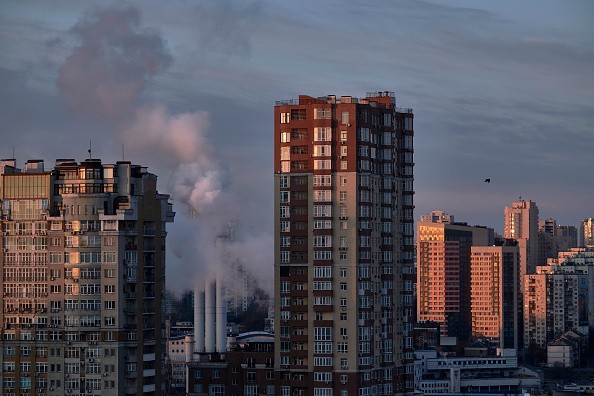If countries respond to Russia's aggressiveness by expanding their use of fossil fuels, the UN Secretary-General has warned that global climate objectives may become unattainable.

Global Temperature Targets
The target of lowering global temperatures to 1.5 degrees Celsius over pre-industrial levels, set forth at the Cop26 UN climate conference last year, is in jeopardy, according to UN Secretary-General António Guterres, as countries seek alternatives to Russian oil and gas supply.
The aftermath of Russia's conflict in Ukraine threatens to upend global food and energy markets, with significant repercussions for the global climate agenda. In a video address to a conference on sustainability hosted by The Economist newspaper in London on Monday, he warned that short-term measures could create long-term fossil fuel dependence and close the window to 1.5C as major economies pursue an "all-of-the-above" strategy to replace Russian fossil fuels.
He said countries may become so preoccupied with the immediate fossil fuel supply shortfall that they disregard or knee-cap plans to reduce fossil fuel usage." He added that the situation is insane and that addiction to fossil fuels is a recipe for disaster.
Europe relies on Russia for 40% of its gas, with Germany depending on Russia for 60% of its gas. The EU is implementing a plan to reduce its reliance on Russian gas by two-thirds this year to eliminate it in future years.
Along with increasing renewable energy output, EU member states seek fossil fuels from other countries, such as Qatari gas and Saudi Arabian oil. Some may also consider increased coal-fired power generation.
Faced with rising gasoline costs, the US is looking to boost its oil imports, even looking at nations that were previously considered pariah states, such as Venezuela and Iran. Domestic oil and gas output in the United States is expected to increase due to fracking and drilling. Oil and gas firms worldwide are seeing a windfall from the ongoing crisis, fueled by the bounce following Covid-19 and nations shifting imports away from Russia.
Also Read : Russia Accused Ukraine of Biological Warfare After Allegedly Discovering 30 Biological Labs
Fuel Duty

The chancellor of the United Kingdom, Rishi Sunak, is considering lowering fuel duty to offset some of the price hikes that have pushed gasoline prices to record highs. Critics worried that such a decrease would have minimal effect on lower-income families.
According to Guterres, relying on fossil fuels will exacerbate existing difficulties. As recent events have demonstrated, continuing to rely on fossil fuels exposes the global economy and energy security to geopolitical shocks and crises. Instead of breaking the global economy's decarbonization, now is the moment to accelerate the transition to a renewable energy future.
Growing Energy Costs
Under the strain of growing energy costs and greenhouse gas emissions, the UN secretary-general recognized widespread concern among climate scientists that the progress at the Cop26 meeting was at risk of vanishing.
Long-Term Troubles
According to the International Energy Agency, as economies recovered from the Covid-19 epidemic, yearly carbon dioxide emissions from energy increased by 6% to their greatest levels in history. Many administrations promised a "green recovery" due to the crisis, but it has yet to materialize.
According to Guterres, if we keep doing what we've been doing, we'll be able to say goodbye to 1.5 degrees Celsius. Even 2C may be out of reach. That would be a disaster.
Read also: Russia's Attack on Ukraine Raises Risk of Nuclear War: How Bad Will a Nuclear Fallout Be?
For similar news, don't forget to follow Nature World News!
© 2025 NatureWorldNews.com All rights reserved. Do not reproduce without permission.





